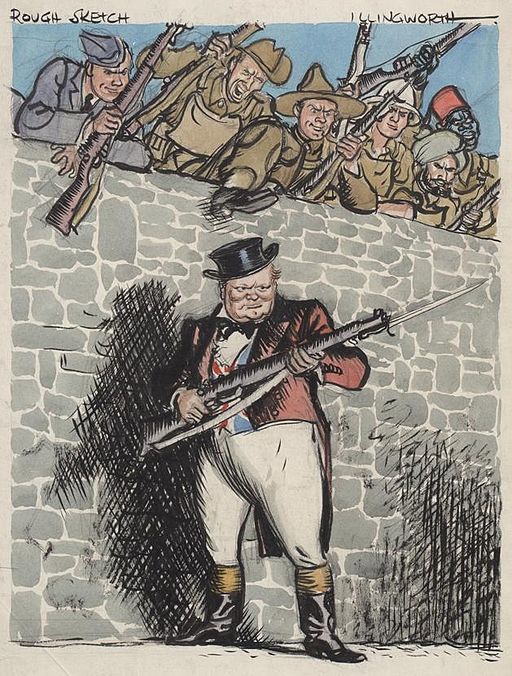Legend has it that in 1949, when Buoyant Billions was being rehearsed at Malvern, Shaw sent Sir Winston Churchill a card with two complimentary tickets for the opening night. The card allegedly read something like:
Here's two tickets to my new play. Bring a friend - if you have one.
On a similar note, Churchill is often quoted as having replied with another witty card:
Cannot attend opening night. Will come to second night - if there is one.
This apocryphal anecdote thrives on the Internet, and has made its way onto the twitter feed of prominent online personalities, such as reputed demographer Conrad Hackett, who posted a picture of what some claim were the original cards or wires:
Not only do active online professinals (Hackett has over 72,000 followers) quote this postal conversation as if it had actually happened, but even Shaw scholars include the above exchange in their research publications - albeit with the necessary caveat. For example, Vivian Elliot in her Dear Mr Shaw: Selections from Bernard Shaw's Postbag (Bloomsbury, 1987) remarks that (p. 234)
"If the story is authentic, Winston Churchill (like his mother before) bettered Shaw in repartee on at least one occasion. When Shaw invited Churchill to the first night of his new play Buoyant Billions in 1949, enclosing two tickets, 'one for yourself and one foryour friend - if you have one,' Churchill replied thanking Mr Shaw and saying that he could not attend the first night... but would be delighted to come on the second - 'if you have one.'"
Others have also taken this anecdote with a grain of salt and researched the long-standing tradition of different versions of this funny exchange.
As usual, the proof of the pudding is in Shaw's own words (at least until someone unearths the actual cards that would prove Shaw a liar). In a letter to Derek Tatham, dated 16th September 1949, and quoted in Volume IV of Bernard Shaw Collected Letters (p. 856), Shaw responds to the journalist who intended to use this story and asked if the playwright "had any objections." Shaw flatly replied:
"The above is not only a flat lie but a political libel which may possibly damage me. Publish it at your peril, whether in assertion or contradiction."
In fact, Churchill scholars also agree that the above quotation is, in fact, apocryphal. Erica L. Chenoweth, in her All the World's a Stage: Churchill and the Theatre has also found evidence that Churchill himself denied these mock-insults.
Well, so much for this amusing quotation. But fear not, my dear friends, there will be many more to source and analyze in my next post - if there is one.


No comments:
Post a Comment